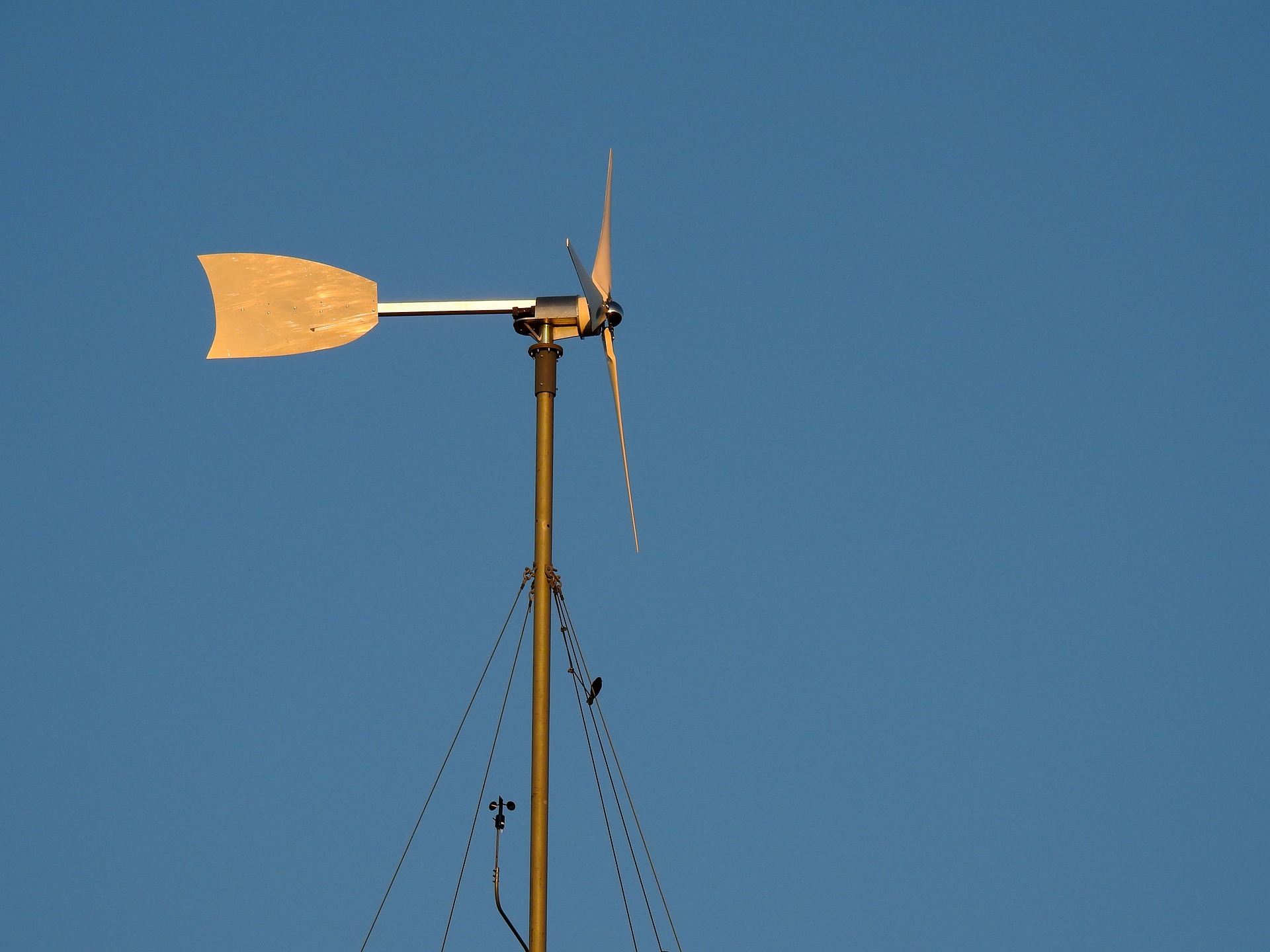Investigation of Wind Data Resolution for Small Wind Turbine Performance Study
DOI:
https://doi.org/10.17159/2413-3051/2022/v33i4a13647Keywords:
Sampling intervals, averaging intervals, method of bins, energyAbstract
Small wind turbine sites, in general, use a 0.5Hz sampling interval and a 10-minute averaging interval for a feasibility study or turbine testing. Studies have established that the calculated performance variation of small wind turbines when averaging at large time intervals. The performance variation is larger for sites with high wind variability. However, these studies are often based on low sampling frequency and high averaging intervals.
In the present study, wind speed data has been measured at a high sampling frequency of 20Hz with an ultrasonic sensor. A dynamic model of a 50W Rutland wind turbine is used to analyse the simulated performance using wind speed data at a range of sampling intervals and some averaging intervals. The wind turbine and the anemometer are installed in a residential area of high wind variability.
The energy is calculated and compared directly using the wind turbine model and using the IEC recommended method of bins. The direct method results show that the rise in instantaneous sampling intervals up to 20 seconds has an insignificant effect on the energy output. Whereas, for 2-seconds sampled wind data averaged over 10-minutes, energy overestimates of 19% is observed. However, where only 10-minute interval averaged wind data are available, there is a significant underestimate in energy by 45%. The energy calculated using the method of bins overestimates the energy by 19% for high resolution wind data and underestimates by 22% for 10-minute average data.
Downloads
References
Battisti, L. et al. (2018) ‘Small Wind Turbine Effectiveness in the Urban Environment’, Renewable Energy. Elsevier Ltd, 129, pp. 102–113. doi: 10.1016/j.renene.2018.05.062. DOI: https://doi.org/10.1016/j.renene.2018.05.062
Doran, J. C. et al. (1977) Accuracy of Wind Power Estimates. DOI: https://doi.org/10.2172/5321738
Gross, M., Magar, V. and Peña, A. (2020) ‘The Effect of Averaging, Sampling, and Time Series Length on Wind Power Density Estimations’, Sustainability, 12(8), p. 3431. doi: 10.3390/su12083431. DOI: https://doi.org/10.3390/su12083431
Hossein, G. (1999) Dynamic and Predictive Dynamic Wind Turbine Control. MONASH UNIVERSITY.
IEC Standard 61400-2 (2006) International Standard - Part 2: Small Wind Turbines, 61010-1 © Iec:2001.
Korprasertsak, N. and Leephakpreeda, T. (2018) ‘Nyquist-Based Adaptive Sampling Rate for Wind Measurement Under Varying Wind Conditions’, Renewable Energy. Elsevier Ltd, 119, pp. 290–298. doi: 10.1016/j.renene.2017.12.018. DOI: https://doi.org/10.1016/j.renene.2017.12.018
Makkawi, A., Celik, A. and Muneer, T. (2009) ‘Evaluation of Micro-Wind Turbine Aerodynamics, Wind Speed Sampling Interval and its Spatial Variation’, Building Services Engineering Research and Technology, 30(1), pp. 7–14. doi: 10.1177/0143624408096343.e DOI: https://doi.org/10.1177/0143624408096343
Rodriguez-Hernandez, O., del Río, J. A. and Jaramillo, O. A. (2016) ‘The Importance of Mean Time in Power Resource Assessment for Small Wind Turbine Applications’, Energy for Sustainable Development. International Energy Initiative, 30, pp. 32–38. doi: 10.1016/j.esd.2015.10.008. DOI: https://doi.org/10.1016/j.esd.2015.10.008
Roslan, E. et al. (2018) ‘Effect of Averaging Period on Wind Resource Assessment for Wind Turbine Installation Project at UNITEN’, in AIP Conference Proceedings, p. 020257. doi: 10.1063/1.5066898. DOI: https://doi.org/10.1063/1.5066898
Sunderland, K. et al. (2013) ‘Small Wind Turbines in Turbulent (Urban) Environments: A Consideration of Normal and Weibull Distributions for Power Prediction’, Journal of Wind Engineering and Industrial Aerodynamics. Elsevier, 121, pp. 70–81. doi: 10.1016/j.jweia.2013.08.001. DOI: https://doi.org/10.1016/j.jweia.2013.08.001
Tabrizi, A. B. et al. (2015) ‘Rooftop Wind Monitoring Campaigns for Small Wind Turbine Applications: Effect of Sampling Rate and Averaging Period’, Renewable Energy. Elsevier Ltd, 77, pp. 320–330. doi: 10.1016/j.renene.2014.12.037 DOI: https://doi.org/10.1016/j.renene.2014.12.037

Downloads
Published
Versions
- 2022-12-30 (2)
- 2023-03-26 (1)
Issue
Section
License
Copyright (c) 2022 Kimon Silwal, Peter Freere

This work is licensed under a Creative Commons Attribution-ShareAlike 4.0 International License.



.png)